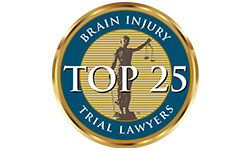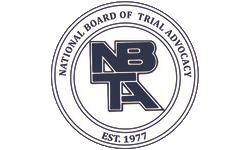Choosing to place your loved one in a nursing home is an emotionally charged and tough decision. But at the end of the day, it’s all about ensuring their quality of life. Your loved one should live with dignity, respect, and have excellent care in their nursing home. Sometimes, they aren’t treated this way.
When seniors are neglected, their health can seriously decline. They may suffer physically, emotionally, mentally, or socially. Depending on the resulting injuries, recovery could be challenging and long. In some cases, nursing home abuse results in the wrongful death of residents.
Your loved one deserves better. If you believe your family member has suffered wrongfully in their facility, you may be able to seek compensation on their behalf with the help of a Lexington nursing home abuse lawyer from Golden Law Office. The litigation process is demanding, which is why it’s crucial to work with an experienced law firm you can trust.
At Golden Law Office, our lawyers go above and beyond to fight for the rights of nursing home abuse victims in Kentucky and will do everything we can to get you a favorable settlement. Part of building a successful personal injury claim revolves around determining what type of abuse your loved one suffered and why it happened. We’ll launch a thorough investigation to determine what went wrong and who’s responsible.
What Kinds of Nursing Home Abuse Occur?
There are several ways someone can commit nursing home abuse, even if it’s unintentional. Nursing home residences may not have enough staff working, and the staff there can easily be overworked and underpaid. While this is no excuse for a nursing residence to neglect your loved one, it might explain inconsistencies in their care.
Common forms of nursing home abuse are:
- Physical. Pushing, shoving, or handling too roughly are all forms of physical abuse. There’s also the use of restraints, which can be physical or chemical, that are used purely for convenience. These methods are illegal and something no one should ever have to experience.
- Emotional. Sometimes, those taking care of your loved one may treat them cruelly through harsh words or hostile attitudes. They can also keep your loved one from participating in activities and seeing friends in the home, which negatively hurts them socially and makes them feel isolated.
- Sexual. Sexual abuse can occur in nursing homes. It’s difficult for victims to speak out, especially if they suffer from memory loss or have trouble communicating.
- Financial. People can take advantage of the elderly through theft or other means to steal their money. Because seniors in nursing homes may have medical conditions like dementia, they may not realize that someone is taking their money.
- Abandonment. This happens when a resident is taken to another location like a restaurant or mall and then left there. The resident can become greatly distressed, especially if they have memory loss. They may not be able to tell someone they’re lost, or they could unknowingly leave the location.
- Neglect. Often, nursing homes can be understaffed. When there aren’t enough people to care for the residents, they won’t get the attention they need. This could potentially mean residents aren’t getting medication when they need it or those who need assistance with mobility won’t be able to move. One of the biggest risks from neglect is a resident who needs help trying to do something themselves and falls, which can be incredibly dangerous for an older person—as the resulting injuries can be life-threatening, especially if they hit their head.
Residents deserve to live in a home where they are safe and can live a healthy life. Now that you know the types of elder abuse, you may be able to pick up on evidence that it’s happening to your loved one.
The Relationship Between Understaffing and Abuse
While there are a number of causes of the abuses listed above, understaffing of a facility can directly and indirectly result in neglect. Employees at understaffed nursing homes are more likely to become overwhelmed and frustrated while working with residents, which results in more instances of abuse. Unintentional neglect is an issue because staff members may not be able to attend to every resident or address emergency situations properly.
Understaffing happens for a number of reasons. For one, negligent facilities often try to increase their bottom line by hiring fewer people and having them work longer hours. This often results in stress, high turnover rates, and frequently unfilled positions. There’s also the issue of some facilities being unable to find adequately trained nurses and certified nursing assistants who can provide the proper care the residents need. This is especially true in rural locations.
Proving understaffing led to your loved one’s abuse or neglect can be challenging. This is why it’s crucial to work with a Lexington nursing home abuse lawyer. With our help, you’ll be able to determine the cause of your loved one’s mistreatment and make direct correlations to their injuries and losses.
What Are the Signs of Nursing Home Abuse?
If you’re concerned that your loved one is being abused, there are signs you can keep an eye out for when you visit them. Try to go outside of high-traffic visiting hours and go as often as you can. That way you can see the typical day-to-day schedule and track any changes in your loved one.
Look for any of these red flags:
- Unexplained Bruises or Cuts. While accidents can happen and seniors can bruise more easily than younger people, they shouldn’t have multiple unexplained bruises or cuts on a regular basis.
- Fall Injuries. One of the biggest risks for seniors is falling. If they’re being neglected, there’s a chance they may try to walk or reach for something on their own and fall. These injuries can result in infection or hip fractures. The Centers for Disease Control and Prevention (CDC) notes that in the most severe cases, falls can be fatal.
- Changes in Mood. If your loved one seems uncharacteristically frightened, angry, or withdrawn, you may want to investigate what’s making them feel this way.
- Evidence of Overmedication. In some cases, nursing homes will overmedicate their residents because it’s easier to control them that way. Look for unusual signs like being spaced out and if they can’t communicate like they used to—going from speaking coherently to suddenly mumbling is a concern.
- Malnourished or Dehydrated. Seniors need excellent nutrition and to stay hydrated. Lack of nutrition can make seniors weak and put them at a higher risk of getting sick.
- Poor Hygiene. Your loved one should be clean, dressed in fresh clothes, and have good dental care. A sudden decrease in their personal hygiene can indicate neglect.
- Unhygienic Environment. Get a look around your loved one’s room and the residence in general. The place should be dusted and vacuumed. Since it’s a nursing residence, accidents can happen, but those should be cleaned immediately. Unhygienic environments are also a breeding ground for disease and illness, which put older people with weaker immune systems at risk.
When it comes to how you feel about where your loved one is living, go with your gut instinct. They won’t always be able to tell you something is happening. Those with dementia or other forms of memory loss may have trouble with communication, so they won’t be able to verbalize what’s happening to them. There’s also the chance that they’re too scared to come forward for fear of retaliation or not being believed. You may find that you’re going to have to be their advocate.
If something feels off and you don’t think your loved one’s quality of life is high, you can ask around the residence. Speak to other families about their loved ones and if they’re happy with the care they’re receiving. You can also speak with staff and see if they’re patient, kind, and prioritizing your loved one’s care.
The Dangers of Elopement
Residents need regular supervision, so the staff knows their location and that they’re safe and comfortable. When the staff doesn’t have the people to keep up with the residents and also doesn’t have a sound security system, residents can elope.
This means they’ll leave the home when they aren’t capable of keeping themselves safe. If the staff doesn’t know they’re gone this can quickly turn into a serious situation where the resident’s life may be in danger.
If a resident gets lost or confused, they may continue to keep moving away from the home. They’re completely exposed to the elements and they may not be wearing clothing or shoes that are suitable for being outside. Fall injuries are a major concern because they won’t be able to move and will have to wait for the staff to realize they’re gone and go find them. If the resident sustains a head or hip injury, they need immediate medical attention, which likely won’t happen if their absence has been overlooked.
Weather is another factor that gives these situations a timetable. If the resident leaves in the middle of summer, they’re at risk for dehydration. Seniors need to stay hydrated to stay healthy. They’re also at risk of prolonged sun exposure which could cause sunburn. Winter has the risk of hypothermia and frostbite if the resident spends too much time in the cold.
If you’re concerned about elopement, ask your loved one’s nursing home about their protocols to help prevent this. They may use the following preventative measures:
- Security alarms on doors
- Have educated the staff on elopement
- Their outdoor spaces are enclosed
- Offer supervised walks
- Have a protocol to follow if a resident goes missing
As you speak with staff about what they do to prevent elopement, you’ll get an idea of how prepared they are. If they can’t seem to give you a straight answer or only have vague responses, this may not be the most responsible nursing home.
Recovering Damages for Nursing Home Neglect
With a strong claim, your Lexington nursing home abuse lawyer will be able to prove your loved one is owed compensation for their suffering. The compensation they’re eligible will be based on their injuries and trauma. Economic damages typically cover medical expenses. You may also be able to seek recovery for the money that was spent to house them. Noneconomic damages cover pain and suffering and emotional distress. If the nursing home was particularly reckless, you can also seek punitive damages, which exist to punish the facility for their wrongdoings.
To successfully receive compensation, your case will need to prove the nursing home owed the resident a duty of care based on their contract, the facility breached that duty, and the resident was injured as a result. If the case is against specific staff members or employees, similar elements are needed to prove negligence.
Valuing a nursing home abuse case can be challenging, but your lawyer will ensure all losses are accounted for. Factors that impact the value include the cost of medical expenses, lost income, expert fees, suffering, emotional trauma, wrongful death, and whether or not the jury believes the facility should be punished.
It’s important to note that the majority of nursing home abuse or neglect cases are settled outside of court. Sometimes, the terms of the settlement and size of the compensation payment are kept private. If, however, your case proceeds to trial, we’ll be sure to work to ensure a successful outcome on your behalf.
Help Your Loved One Today
If your loved one is being abused in their nursing home, you may have feelings of guilt or sadness that they were subjected to that. It’s important to know that this wasn’t your fault and you can hold the facility and employees responsible for their neglect and cruelty.
Filing a claim takes time, so it’s important to get started as soon as possible. Once you’re aware of the abuse or neglect, do what you can to remove your loved one from the situation and get in touch with one of our lawyers. While you focus on ensuring your loved one receives the medical attention they need and has somewhere safe to reside, we’ll handle starting your claim and gathering the evidence needed to prove the nursing home was negligent.
For more information on state resources for reporting abuse, data, statistics, and recent lawsuits against nursing homes in Kentucky, please see our nursing home abuse resource guide.
Get in touch with Golden Law Office today. You can set up a free consultation with one of our Lexington nursing home abuse lawyers to talk about your case and what the next steps are to getting justice for your loved one.
Golden Law is a local, Kentucky Law Firm, attorneys/lawyers in Fayette County, Kentucky, working in the fields of personal injury, auto accidents, car and truck wrecks; medical malpractice: doctors, hospitals & nursing homes; senior living abuse: neglect, physical abuse, emotional abuse, dehydration, bedsores, catastrophic injuries, and broken bones. If you are considering a lawsuit, call us at 859.469.5000 for a free consultation. We are located at 771 Corporate Dr. Suite 800/ Lexington, Kentucky 40503. We handle cases all over the Commonwealth of Kentucky. We have represented and trained people in major insurance companies & major trucking companies. We have first hand experience and know the ‘inside of the insurance business’ … that’s a distinction that no other law firm can make. We’re Your Advocate. Dale Golden, Laraclay Parker.











